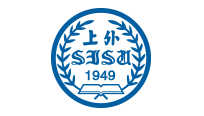How to study in Canada as an international student
Interested in studying in Canada as an international student? Here, we explore why Canada is a great place to live, look at the best universities, and prepare to study in Canada.

By Kaylee Randall
With nearly 100 universities in Canada, it’s no wonder that so many students want to study in this beautiful country. For those who wish to study abroad, Canada is a great choice.
If you’re an international student who wants to study in Canada, there are multiple pathways to make this a reality. As experts in education, we’ll walk you through all the ins and outs of being an international student in Canada.
Why study in Canada?
Canada is a wonderful place to call home. In US News rankings it holds the #1 spot in quality of life. This is due to high markers for being economically stable, politically stable, safe, having a good job market, a well-developed public education system, and a well-developed public health system.
The Canadian government is working hard to ensure that the nation’s quality of life remains superb by focusing its efforts on mitigating climate change and preserving Canada’s natural ecosystems.
With the world’s ninth largest economy, there’s no surprise that Canada boasts a highly ranked job market into which students to graduate. Some of the highest paying jobs in Canada are in rapidly growing industries throughout the country, including:
- Cryptocurrency
- Precious metal mining
- Cannabis
- eCommerce
- Primary Care
- Software development
- E-sports and video gaming
- Renewable energy
- Social media
- Cybersecurity
If you want to study in Canada and take advantage of its booming economy and great quality of life, you’ll be wise to study its history.
While indigenous peoples have lived in Canada since time immemorial, the Dominion of Canada was established on July 1, 1867. It comprises ten provinces and three territories, each of which has a unique government and legislative assembly. With a diverse population, Canada has two official languages: English and French.
The Canadian education system varies from province to province. Across all provinces, there is one major similarity: a commitment to funding public education. Greater than 90% of school-aged children in Canada are enrolled in publicly funded schools.
More than half of Canadians have a higher education certification. Canadian universities are supported by a mix of public funds, tuition fees, donations and other funding bodies.
Both the federal and provincial governments of Canada fund scholarships that help students pay for their education. There are also several other educational funding opportunities through Canada, some geared toward Canadian students and others for international students in Canada.
Let’s break down some of the highlights of the various public education systems across Canada’s 13 provinces.


Canadian provinces
Ontario
Public universities and colleges in Ontario are not free, but they are often subsidised to be cheaper for students. One of the highest-ranked universities in the world, the University of Toronto, is situated in Ontario. There are a total of 22 universities and 24 colleges in Ontario. Ontario is a French- and English-speaking province.
Quebec
Quebec is a primarily French-speaking province, though there are some English-speaking schools as well. Quebec has 18 universities, all of which offer courses and programs in French, although a select few also offer courses in English. McGill University, which is consistently ranked high in world university rankings, is located in Montreal, Quebec.
British Columbia (BC)
BC is a primarily English-speaking province, though it does offer some Francophone schools. There are 14 public universities and 11 colleges located in British Columbia, many of which have excellent reputations as world-class institutions.
Alberta
Alberta is globally renowned for its education system and is home to eight public universities and eleven public colleges. It is a primarily English-speaking province.
Manitoba
Manitoba is both an English- and French-speaking province. There are eight public universities and five public colleges in Manitoba, some of which offer programs entirely in French.
Saskatchewan
Saskatchewan offers two public universities and several federated and affiliated colleges. There are also three Indigenous and northern educational institutions recognised in Saskatchewan, including the First Nations University of Canada. English is the primary language in this province.
Nova Scotia
Nova Scotia is a primarily English-speaking province with French language requirements throughout primary school. There are ten universities in Nova Scotia in addition to the Nova Scotia Community College which has several campuses across the province.
New Brunswick
New Brunswick is the only officially bilingual province in Canada. There are eight chartered universities, four public universities and five colleges in New Brunswick, most of which offer bilingual programs in line with the two official languages of the province.
Newfoundland and Labrador
Newfoundland and Labrador offer both French- and English-speaking schools. The most affordable university in Canada, Memorial University of Newfoundland, is located in this province, along with the College of the North Atlantic.
Prince Edward Island (PEI)
PEI’s public school system is split into two districts, one English-speaking and one French. PEI has one public university and two community colleges.
Territories
The three Canadian territories also govern their own school districts and are home to one public university and two colleges. The school districts within the territories focus on Indigenous learnings and languages, as well as French and English.
Best universities in Canada for international students
It’s no surprise that nearly 20% of students enrolled in formal programs in Canada are international students. In addition to its low cost of living compared to countries like the UK and US, Canada’s student visa even permits you to work in most instances, either on or off campus.
According to US news rankings, the best universities in Canada for international students are:
- University of Toronto: The University of Toronto has over 980 programs for students to choose from and a top-funded research program. Over 20% of its student body is comprised of international students.
- University of British Columbia: The University of British Columbia is a research powerhouse and a highly prestigious university located in Vancouver. UBC boasts North America’s most international campus community.
- McGill University: McGill University, located in Montreal, is known for its excellent programs in both the arts and the sciences. Nearly 30% of McGill University’s students come from 150 different countries.
- McMaster University: McMaster University, located in Hamilton, is ranked 80th in the world and 4th in Canada. 15% of McMaster students are international, from 120 countries.
- University of Alberta: The University of Alberta is spread across five campuses with nearly 40,000 students, over 7,200 of which are international.
- University of Montreal: Founded in 1878, the University of Montreal is a French-speaking university, welcoming around 10,000 international students each year.
- University of Calgary: While the University of Calgary ranks #169 of best universities in the world, it lands at #7 in Canada with over 7,000 international enrolments each year.
- University of Ottawa: The University of Ottawa is a bilingual public institution and each year welcomes over 7,500 international students.
How to study in Canada
If you’re interested in attending university in Canada, your best first step is determining your ideal area of study. A great place to start is looking through the fastest-growing industries within Canada. Other important factors include your current interests and areas of study in which you excel. Which skills are in-demand in Canada?
Which skills are in-demand in Canada?
FutureLearn has identified and built courses to help you to learn some of the most in-demand skills to study in Canada at the moment, including:
- Hard skills:
- Soft skills:
With multiple styles of course offerings, FutureLearn can help you learn a new skill at your style and pace. Check out the most popular online courses in Canada to see where else Canadians are upskilling.
Entry requirements for study in Canada
After you determine your area of study, you’ll need to meet the entry requirements for Canadian universities. Common entry requirements at Canadian Universities for international students include:
- An average high school grade of 70% and over (85% and over for more prestigious institutions)
- An essay and personal statement on your desire to study in Canada
- Reference letters
- TOEFL (Test of English as a Foreign Language) or IELTS (International English Language Testing System) exam scores, if English is not your native language
- Certain programs may also require proof of strong French language skills
Applying for a student visa in Canada
After you’ve been excepted to a university in Canada, you’ll need to acquire a Canada student visa. The following documents are required when applying for a Canada student visa:
- Valid passport
- Proof of acceptance from a University in Canada
- Proof of funds of minimum CAD 10,000 for each year of study
- Passport sized photographs
- Immigration Medical Examination (IME)
- TOEFL or IELTS score, if necessary
- Statement of purpose
- Application fee of CAD 150
How to prepare to study in Canada
As an international student in Canada, you’ll need to learn how to study well, manage your time and think critically about your course material.
FutureLearn is dedicated to your educational success, both while applying to study in Canada and once you’re a successfully enrolled international student in Canada. Check out the FutureLearn courses below designed to best prepare yourself for your studies.
- Guide to University Entry from the University of Reading
- Discover Dentistry from the University of Sheffield
- Introduction to Studying Law from the University of Law
- IELTS Preparation created by the British Council
- Next Steps to University: From Choosing A Course to Your First Assessment from the University of York
- Learn French for Global Communication from King’s College London
- Cultural Diplomacy from the European University Institute
- Get Ready for Success at University from the University of Hull
- Finding and Reading Research from the University of Birmingham
- Learning and Teaching in Higher Education from Coventry University
Final thoughts
With a booming economy and high quality of life, studying in Canada is a wonderful opportunity for international students. And you can get started today with online learning.
FutureLearn offers a wide range of courses to both prepare you for university and to earn credits towards a degree. So, whether you’re just starting to think about how to study in Canada as an international student or you’re ready to apply to a Canadian university, FutureLearn has opportunities for you.
Check out our full catalogue of courses, degrees and microcredentials today.
















